SAME-NeuroID



This project has received funding from the Horizon Europe Research and innovation funding programme under Grant Agreement Project 101079181 — SAME-NeuroID
HE Twinning project: SAME-NeuroID: Project summary
Project name: Standardized Approaches to Modeling and Examination of Neuropsychiatric Disorders
(SAME-NeuroID)
Project number: 101079181
Topic: HORIZON-WIDERA-2021-ACCESS-03-01
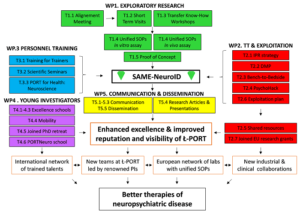
Type of action: HORIZON Coordination and Support Actions
The SAME-NeuroID project is a joint initiative of Łukasiewicz-PORT (Poland) and outstanding European neuroscience leaders: Paris Brain Institute (France), Max Planck Institute for Psychiatry in Munich (Germany), Erasmus Medical Center in Rotterdam (Netherlands) to accelerate the consortium’s positioning at the forefront of neuropsychiatric research.
The scientific focus of this initiative will include standardizing protocols for modeling neurobiological parameters associated with neuropsychiatric disorders, one of the most serious problems in modern society. An estimated 27% of the EU adult population suffers from at least one mental disorder, often throughout their lives. One reason for this overwhelming statistic is an inadequate understanding of the biological basis of psychiatric illnesses. Recent advances in epidemiological and genetic studies have opened up the possibility of exploring gene-mind relationships. To take full advantage of these findings, there is a fundamental and urgent need for unified, well-defined models to understand disease mechanisms and identify targets for new therapeutic strategies. The standarization of relevant models forms the core of research collaboration within the Twinning project.
The SAME-NeuroID platform, which will be developed with partners, will provide a strong foundation for the future design of new therapeutic strategies in psychiatric disorders.
In addition, the partners will undertake a series of joint initiatives:
- to exchange knowledge on technology transfer
- to support the development of young researchers
- to manage research excellence
- to disseminate key discoveries in the field
- to raise public awareness of mental health.
Łukasiewicz Research Network – PORT Polish Center for Technology Development
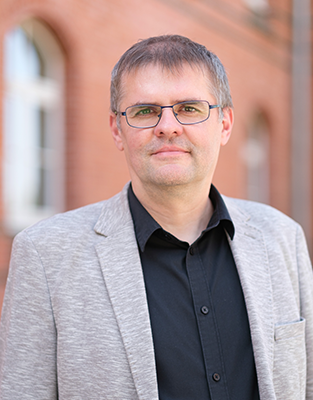
Witold Konopka
PhD – Principal Investigator, Head of Neuroplasticity and Metabolism Research Group from March 2021. His main interest is in brain-driven eating disorders – from neuropsychiatric disorders such as Anorexia nervosa to the pandemic of the modern world – obesity. He studies the precise mechanisms that regulate peripheral metabolism by the brain.
His research focuses on how neurons modify their activity in response to both internal and
external signals.
Role in the project: Coordinator of the SAME-NeuroID
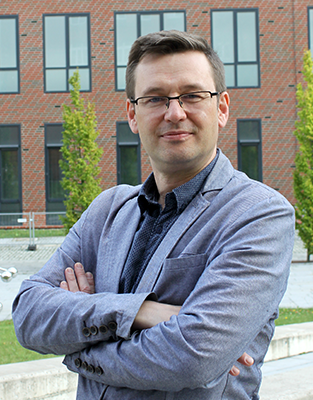
Michał Ślęzak
Role in the project: Coordinator of Twinning research agenda at Łukasiewicz – PORT
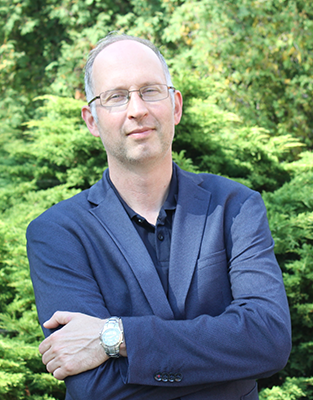
Michał Malewicz
Role in the project: Leader of interdisciplinary research
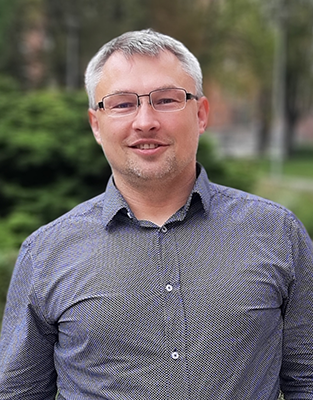
Tomasz Prószyński
Role in the project: Leader of interdisciplinary research
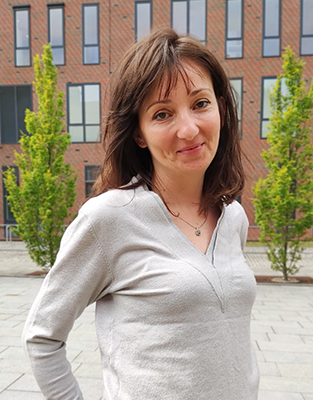
Agnieszka Krzyżosiak
PhD – Principal Investigator, Head of the Laboratory of Mechanisms of Neurodegeneration. She is interested in understanding how aged cells get prompt to neurodegeneration. She investigates the protein quality control pathways in human-relevant in vitro models as well as in vivo for improved translatability of research.
Role in the project: “In vitro” task supervisor
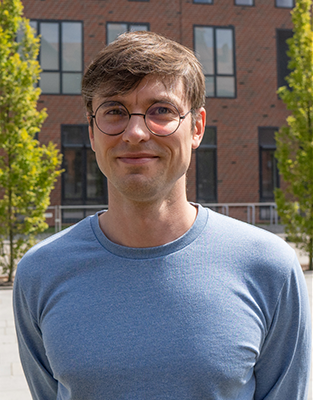
Bartosz Zglinicki
PhD – Research Engineer, Post-doc. He is interested in automation of scientific tools and processes and in the future intersection of machine learning and science. In Twinning, he focuses on establishing a “Social Box” solution for reliable and unbiased analysis of more complex, animal social behavior.
Role in the project: “In vivo” task supervisor
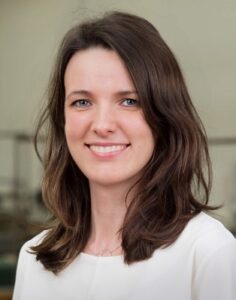
Katarzyna Kowal
PhD, Eng. – PORT Head of the Technology Transfer, Areas of expertise and interest include materials science, biomedical engineering, biotech and deep tech developments. She is responsible for managing the technology transfer division. Her work focuses on managing activities required to protect the Intellectual Property generated at PORT and supporting the processes of the implementation of the research ideas to the market, developing business-researchers network and promoting the entrepreneurial attitude among the staff members.
Role in the project: Technology Transfer
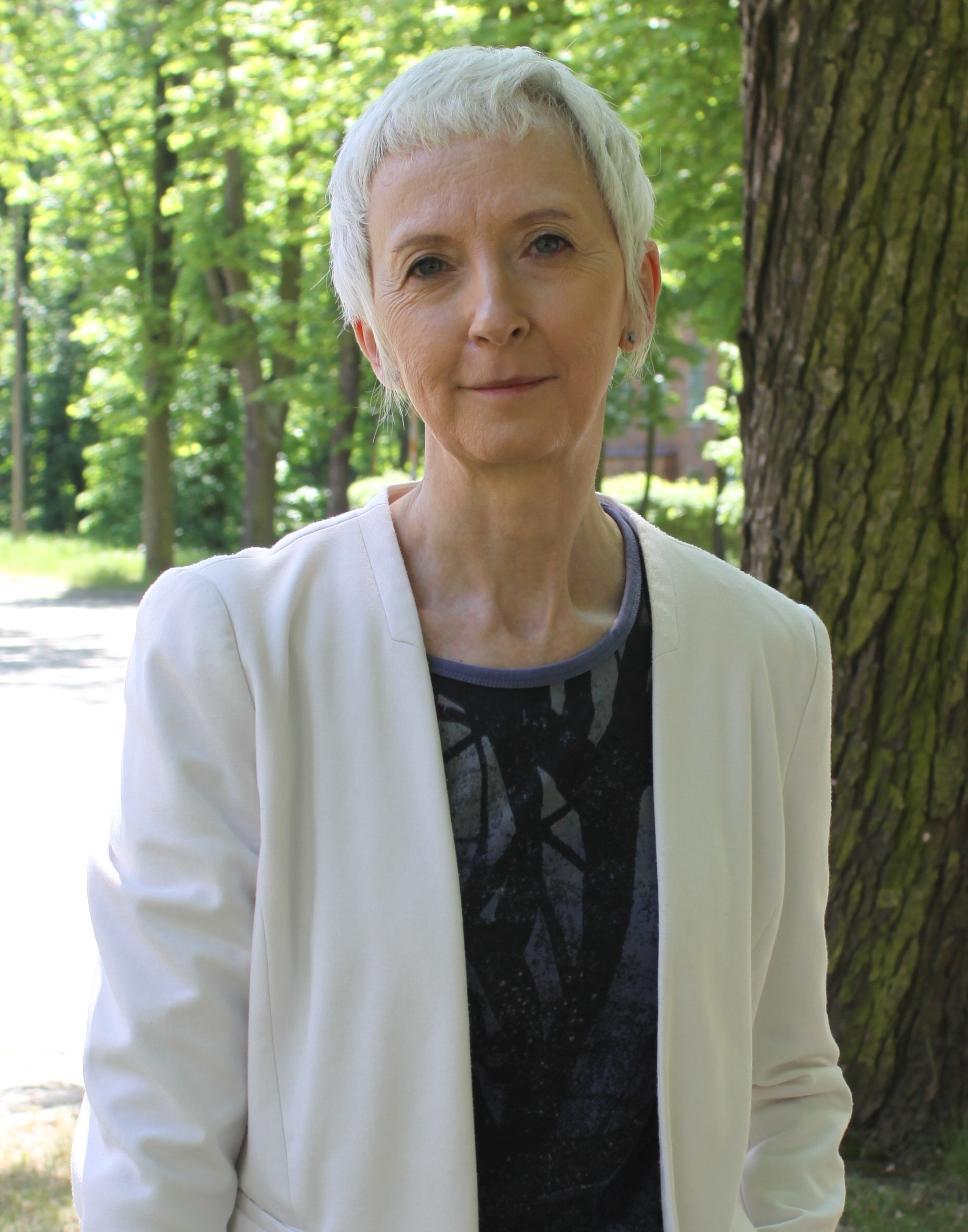
Beata Lubicka
Role in the project: Management and Administration

Marta Małolepsza
Event Coordinator who ensures the widest visibility of SAME-NeuroID project. She is responsible of advertisement of project activities and results; distribution the outputs as broadly as possible; helps building a network of commercial and academic partners through the organization of seminars on project topics and two editions of the ‘PORT for Health: Neuroscience’ conference bringing together leaders in the field.
Role in the project: Event and Communication Coordinator

Ewa Mrówczyńska
Ewa Mrówczyńska, PhD – Senior Research Engineer, Postdoc. She has experience in investigating the mechanisms underlying the peripheral nervous system development during embryogenesis using in vitro and in ovo models. Being a team member of the SAME-NeuroID project, she is responsible for the implementation of standardized in vitro assays at Łukasiewicz-PORT, as a research platform for understanding the complex biology of neuropsychiatric disorders.
Role in the project: “In vitro” task researcher
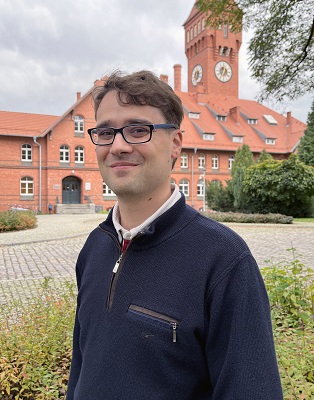
Bertrand Dupont
Bertrand has in-depth knowledge and experience in intellectual property, transfer of technology and commercialization. He obtained a PhD in pharmacy and pharmacology from the “University of Bath” in England in 2015. His previous work experiences include: Patent Analyst in the MedTech startup group: Passio group in Bydgoszcz, “Business Solutions Consultant” for the international company: Comarch Healthcare, and Innovation Broker at Nicolaus Copernicus University in Toruń, responsible for Collegium Medicum in Bydgoszcz.
Role in the project: Technology Audit and Pre-incubation Advisor
Paris Brain Institute (The Institut du Cerveau – ICM)
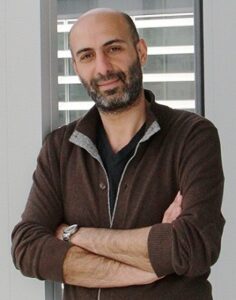
Bassem Hassan, PhD – Scientific Director
Role in the project: Member of the Steering Committee

Geraldine Gouzer – Director of Scientific and Medical Affairs
Role in the project: WP4 YOUNG INVESTIGATORS Leader

Cristina, De Lemos – ICM Program manager
Role in the project: WP4 YOUNG INVESTIGATORS Manager
Max Planck Institute of Psychiatry
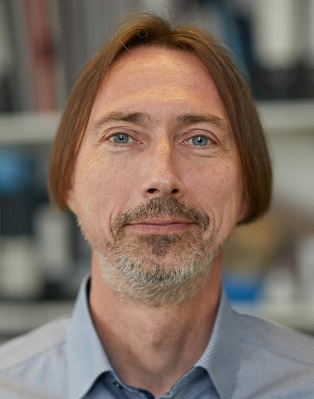
Mathias Schmidt, PhD – Research Group Leader. The Schmidt Lab studies the behavioural, neuroendocrine and molecular basis of individual stress vulnerability and resilience.
Role in the project: Member of the Steering Committee

Miriam Lorenz – EU Consultant in MPI
Role in the project: MPG Project Contact
Erasmus MC

Steven Kushner, PhD – Full Professor
Role in the project: Member of the Steering Committee
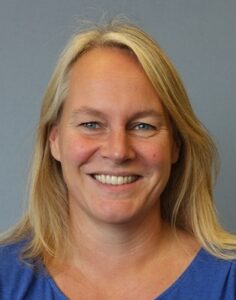
Dr. Femke de Vrij, PhD – Associate professor
Role in the project: WP2 STANDARDS TOWARDS TECHNOLOGY TRANSFER – EXPLOITATION
SAME-NeuroID was created together with three recognized European research centers:
- Paris Brain Institute,
- Max Planck Institute of Psychiatry in Munich,
- Erasmus University Medical Center in Rotterdam.
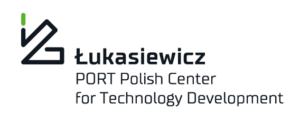
Has a leading/coordinating role
The Polish Center for Technology Development (Łukasiewicz-PORT) is a part of the Łukasiewicz Research Network (Łukasiewicz), which is one of the largest R&D networks in Europe. The mission of Łukasiewicz is to create a knowledge-based economy that drives value. Łukasiewicz-PORT was transformed into a public research institute in 2018 and immediately became one of the leading units of the Łukasiewicz Network in terms of size, resources, and perspectives. The development strategy of Łukasiewicz-PORT is built on four pillars: biotechnology, nanoengineering, commercialization, and IP protection, which together form the basis of the excellence center and a reference for national R&D units.

The Institut du Cerveau et de la Moelle épinière (ICM) is a private state-approved non-profit foundation. The ICM is dedicated to high-level neuroscience research and is located in the heart of the Pitié-Salpêtrière Hospital (AP-HP). The ICM is based on a partnership between the public and private sectors. In March 2011, the ICM signed an agreement with its academic partners AP-HP, CNRS, Inserm and the University of Paris Pierre and Marie Curie (UPMC) making resources available. Therefore the ICM gathered the critical mass in neurosciences in the same building and the academic research teams work with the same research objectives and in the framework of the same research orientation/strategy.

The Max Planck Institute of Psychiatry (MPI) is a scientific institute, one of the 81 institutes in the Max Planck Society, based in the city of Munich in Germany specializing in psychiatry. MPI’s goal is to gain new insights into the causes of psychiatric disorders through a uniquely close combination of basic research, clinical research and patient care, and to transform them into new diagnostic options and treatments and preventions. Stress and trauma-related illnesses, such as depression and anxiety disorders, are the focus of our research and our clinical treatment offerings.

Day in, day out, the people of Erasmus MC, volunteers and students work with passion and dedication to achieve everything we stand for: safe, first-rate healthcare for patients with complex issues, unusual conditions or acute needs. But we also stand for top-quality teaching that attracts ambitious, inquisitive and talented students and seeks to answer the healthcare questions of tomorrow. And we stand for world-class scientific research that bolsters our understanding of diseases and disorders and helps to predict, treat and prevent them.
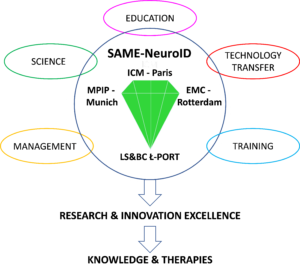
Neuropsychiatric disorders are an increasing burden of modern societies. Recent report of World Health Organization informed that approx. 1 billion people live with mental disorder, with largest fraction suffering from anxiety and depressive disorders. This overwhelming number stems largely from the insufficient understanding of neurobiological mechanisms of the disease. Recent studies identified hundreds of genetic risk variants which, when coupled to environmental risk factors, cause discrete disease manifestations. The next step is to resolve the gene-physiology-behaviour relationship underlying individual symptoms. Laboratories around the world have developed various models to address this challenge. However, these tools are often site-unique and data are rarely comparable across research units. The heterogeneity of approaches hampers the development of novel therapies, since comprehensive and reliable target validation is a prerequisite for designing new therapeutic strategies.
Scientific aim of the project is to establish the platform of Standardized Approaches to Modelling and Examination of Neuropsychiatric Disorders (SAME-NeuroID) at Łukasiewicz- PORT. The platform will meet the market needs for a unified and well-defined set of tools with which to investigate the biological basis of mental disorders with high reliability and reproducibility, a prerequisite for early validation of targets. The components of the SAME-NeuroID platform will be two types of complementary assays covering key aspects of target validation: in vivo assays for evaluating social behaviour deficits in rodents, and in vitro assays for examining cellular phenotypes related to psychiatric diseases in the context of human neural cells.
Automated assay for label-free measure of complex social behaviors.
Animal studies are irreplaceable in investigating the relationship of dysfunction of specific brain microcircuits to behavioural manifestations of mental disorders. Animal models have suffered in the past from oversimplified extrapolation of observations in model systems to human-specific traits. However, the emergence of tools for quantitative and automated measure of traits can overcome the influence of bias originating from experimentator or specific approaches to data collection and/or analysis. A number of devices measuring specific behvaioral deficits were employed by consortium members. Within SAME-NeuroID, we will focus on experimental tools for measuring social behaviour, since deficits in this trait are a shared hallmark of various psychiatric conditions, such as autism spectrum disorders, depression and schizophrenia. Under the current collaboration, we will optimize a simple, affordable and efficient system for unbiased monitoring social behavior in rodents. Our setup will enable label-free registration of multiple animals in the home cage, followed by artificial intelligence-based analysis of complex behaviors. Crucial paramaters necessary for streamlining the process will be validated in wild-type and genetically modified animals of both genders, in order to facilitate broad adoption of the toolbox.
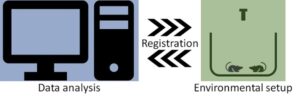
Robust assay for investigating human neuro-glia interaction.
The emergence of approaches based on human induced pluripotent stem cells (iPSCs) raises interest as a key driver for ‘personalized medicine’, since somatic cells for iPSC generation are obtained from the patients with defined medical history. These methods offer an unprecedented possibility to examine specific phenotypes of various types of neural cells related to disease in the context of human genetics. To date, a number of protocols has been published for generation of pure 2D cultures of iPSC-derived neurons or glia, a reductionistic approach to understand the biology of defined cell types. Continuous efforts are currently ongoing to ensure scalability of these methods and streamline the differentiation to achieve desired regional characterization (e.g. cortex, hypothalamus). Alternatively, iPSC can be steered to mimic the developmental sequelae of differentiation in mixed neuro-glial co-cultures, brain organoids and patterned organoids or assembloids, suitable for investigating complex cellular interactions. The main challenge with these tools remains their large degree of heterogeneity, albeit patterned organoids offer a more reproducible and less heterogenous in vitro model.
Within SAME-NeuroID we will validate scalable and reproducible model for investigating human neural cells dysfunctions related to psychiatric phenotypes. Based on a critical review of protocols available in partner laboratories we selected two protocols which offer high reproducibility, functional maturity of cells and screening capacity. During the project, we will share best practices in iPSC handling and differentiation to neural and glial lineages. Our strategy includes validation of cellular maturity and functionality (e.g. glutamate buffering for astrocytes; spontaneous neuronal activity in co-cultures, etc). Ultimately, we will establish standard operating protocols (SOPs) to be employed and validated in Łukasiewicz-PORT and across partner laboratories in the context of site-specific iPSC lines.

In summary, the SAME-NeuroID project shall enable establishing a novel toolbox at Łukasiewicz-PORT based on partners’ feedback and guidelines. Experimental data will form the basis for research articles and presentations on international scientific meetings. Furthermore, the established technology will be disseminated to reach additional R&D units and industrial entities for broadening the network of academic collaborators and increase the likelihood of being involved in innovative translation projects with various funding bodies.
- Witold Konopka – Project Coordinator
e-mail: witold.konopka@port.lukasiewicz.gov.pl
tel.: +48 725 259 049 - Michał Ślęzak – Scientific Coordinator
e-mail: michal.slezak@port.lukasiewicz.gov.pl
tel.: +48 510 132 460 - Marta Małolepsza – Event & Communication Manager
e-mail: marta.malolepsza@port.lukasiewicz.gov.pl
tel.: +48 727 556 663 - Bertrand Dupont – Technology Audit and Pre-incubation Advisor
e-mail: bertrand.dupont@port.lukasiewicz.gov.pl
tel.: +48 725 259 035 - Beata Lubicka – Management and Administration
e-mail: beata.lubicka@port.lukasiewicz.gov.pl
tel.: +48 727 665 560
Loga:
Prezentacje:
Media Kit:
D3.1 Materials for Trainers

